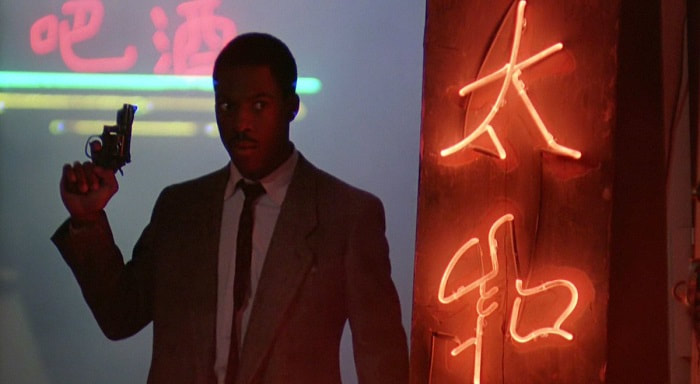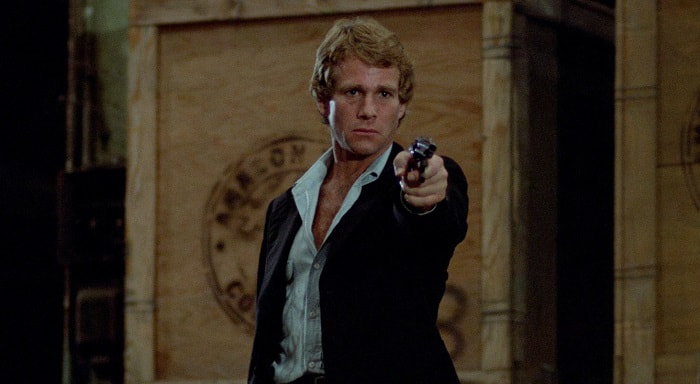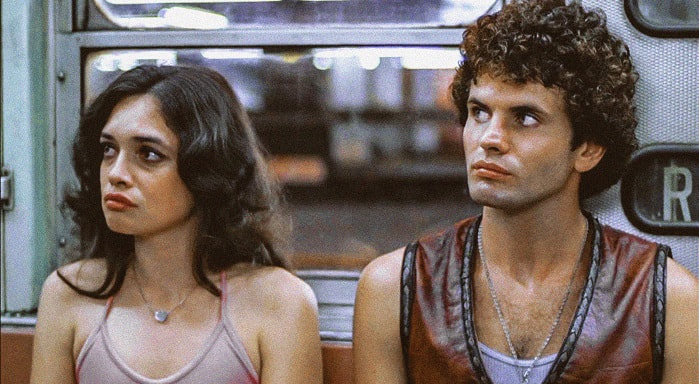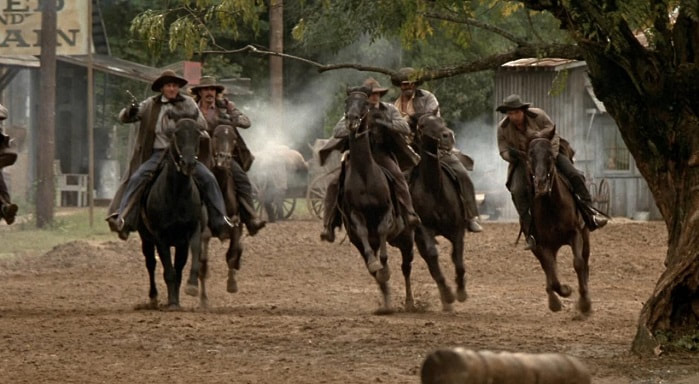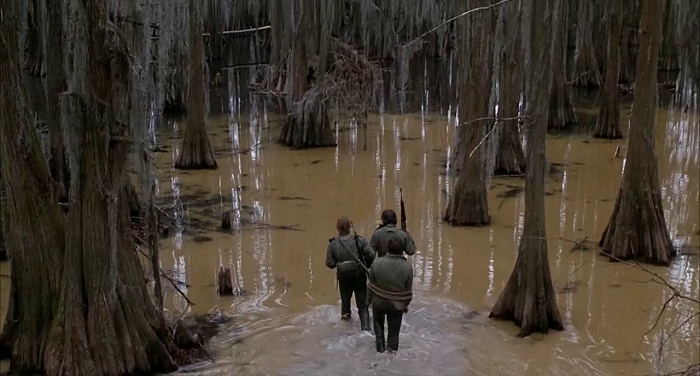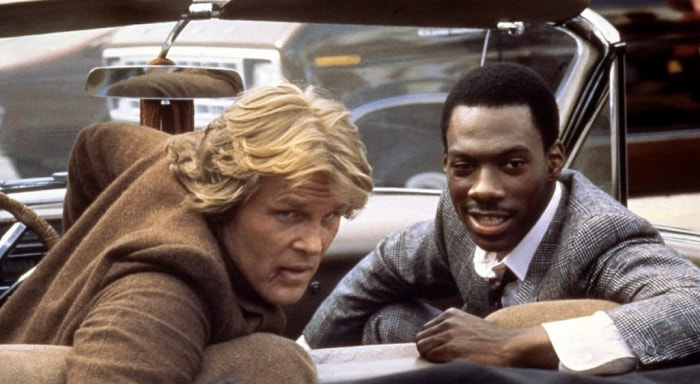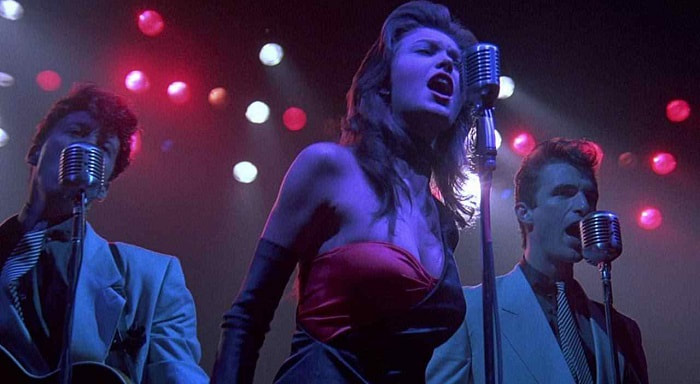|
Note: the audio version of this piece is re-written compared with the original below
In 2017, the BFI published an article about the "17 rare times when a director made five or more great films in a row". This being the BFI, their choices were mostly on the Criterion-approved, arty end: Anderson, Tarkovsky, Antonioni, and so on. For me, one name sprang immediately to mind, one much less adored in cineaste circles: Walter Hill.
Now more or less retired, Hill has had a fascinating and varied career which began in the late 1960s. As an uncredited second assistant director on Bullitt (1968), he was responsible for keeping bystanders from walking out into the street while the car chases were being shot in San Francisco. Later, he decided to focus on screenwriting, explicitly as a route to directing. By 1975 he was in the director's chair, having written a number of scripts including for Sam Peckinpah's mid-career hit The Getaway (1972).
Creatively speaking, Hill didn't so much arrive on the scene as a director as explode. His debut Hard Times (1975) is understated and finely crafted, a period piece set in 1930s New Orleans which has a definitive Charles Bronson peformance, ably supported by James Coburn. While only a modest hit, the film was made on a deal favourable to Hill and set the stage for his career.
I call Hill's initial run of films beginning with Hard Times and ending with Streets of Fire (1984) his "magnificent seven". Brilliantly consistent, these films see Hill returning to the same preoccupations and themes again and again, each time in new ways. They are classic, essential "tough guy" movies, masculine and sparse in dialogue. Although mostly having contemporary settings, they are all heavily indebted to Hill's love of the western. In Hill's world, a man has to survive or get justice on his own, because the "civilization" we know has failed or is absent altogether. Other consistent threads through this period include Hill's terse dialogue and his remarkable facility for visceral action, which far eclipsed other American directors at the time. Hill set out to be a director of accessible genre movies, and helped to revolutionize the form. While he did receive some critical plaudits - The Long Riders (1980) was shown in competition at Cannes and The Warriors (1979) is a recognised cult classic - his chosen genre has led to his being under-recognised. His "magnificent seven" is easily evidence enough of his brilliance. Hard Times (1975)
Having made his name as a writer, Hill cut a deal with producer Laurence Gordon to make his first film as director. Set at Gordon's suggestion in Depression-era New Orleans, Hard Times features Charles Bronson as an itinerant bare-knuckle fighter and James Coburn as a fast-talking hustler who becomes his promoter. Bronson was an older actor than Hill had intended to cast and could only fight for short periods, but the action scenes are electric. The star would not work with Hill again but put in a superb performance as world-weary boxer Chaney.
The Driver (1978)
Hill had worked on Peter Yates' Bullitt (1968) and ten years later, carved out his own place on the list of all-time great car chase movies. Although set in contemporary Los Angeles, The Driver has a strong element of legend about it - its characters known only by sobriquets like "The Cop" and "The Player". For his part, Ryan O'Neal plays "The Driver", a skilled and tenacious freelance getaway man of very few words who enters a bitter conflict with Bruce Dern's ruthless detective. The chases are extraordinary, shot mostly at night and with incredible speed and intensity.
The Warriors (1979)
Hill is best known for The Warriors, which opened to controversy and poor reviews but has ascended to undisputed cult status. A loose adaptation of Sol Yurick's 1965 novel, which was itself inspired by the Anabasis by Xenophon, the film restates Hill's interest in evoking a mythic quality in contemporary stories. The plot sees the gang of the title trying to cross a crime-dominated, almost fantastical New York. Composer Barry de Vorzon had worked on Hard Times - his music here is more prominent and integral.
The Long Riders (1980)
While it is celebrated by some as one of the best westerns of the 1980s, The Long Riders is one of Hill's least-known early films. Focusing on several years in the history of the notorious James-Younger gang, it features no less than four sets of real-life acting brothers: the Keaches, Quaids, Carradines and Guests. Set over a much longer period than most of Hill's films, it has an unusual four-act structure and climaxes - but does not end - with the bloody Northfield, Minnesota Raid of 1876.
Southern Comfort (1981)
Following his first true western, Hill returned to contemporary stories with Southern Comfort. Too often seen as merely a crude analogue for the Vietnam War, the film is an extremely tense thriller with finely sketched characters. Set in 1973, it focuses on a group of Louisiana National Guardsmen who incur the wrath of local Cajun hunters when they become lost during an exercise in the bayou. Keith Carradine and particularly Powers Boothe are excellent in the lead roles.
48 Hrs. (1982)
Hill has long been fond of a quote he attributes to a Godard film: "the jokes are funny but the bullets are real." It's an apt description for 48 Hrs., Hill's most financially successful film and a hit in 1982. It simultaneously helped built and subverts the buddy cop genre: San Francisco detective Nick Nolte and con Eddie Murphy are a magnetic duo on the trail of cop killers, but despise each other. While Hill's most dated film, it's tremendously funny and has gripping action scenes. The finale in a neon-lit alley is perfection.
Streets of Fire (1984)
His most ambitious film yet, Streets of Fire combines Hill's love of urban settings, tough western values, music, and a mythic dimension. Set in "another time, another place" with strong 1950s vibes, the film sees mercenary Cody (Michael Paré) working to rescue his ex-girlfriend Ellen (Diane Lane) from Willem Dafoe's malevolent biker gang. While it doesn't fully achieve its aims and was a notable flop, Streets of Fire has an aesthetic all of its own and distills much of what made Hill such an essential genre director.
0 Comments
Your comment will be posted after it is approved.
Leave a Reply. |
About
Exploring classic science fiction, with a focus on the 1950s to the 1990s. Also contributing to Entertainium, where I regularly review new games. Categories
All
|
